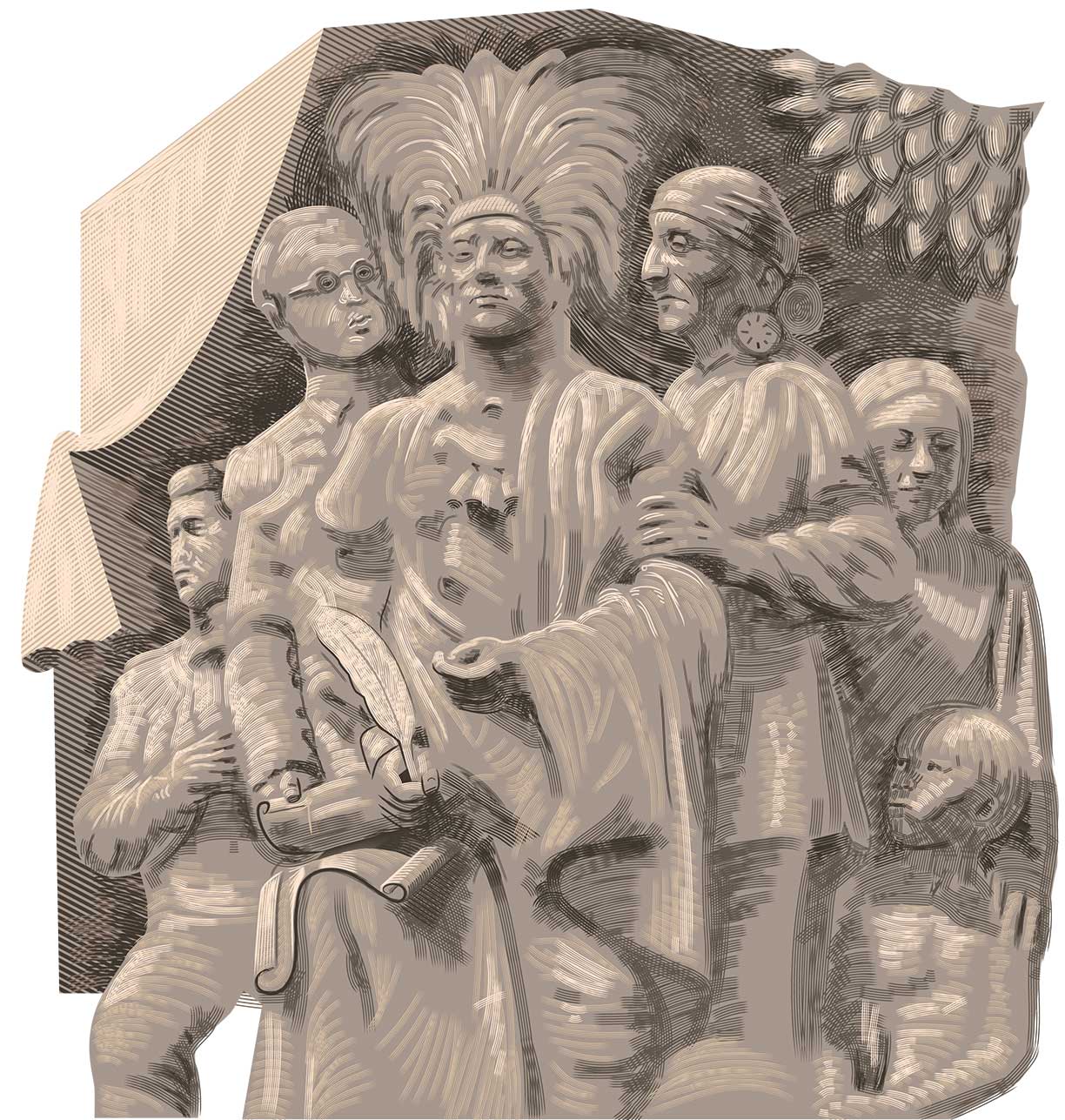An Indian Agent Whose Work Got Him Fired
Princeton Portrait: Leonard D. Shaw 1784 (1766–1808)
In 1792, Leonard Shaw 1784 became a deputy agent authorized to act on behalf of the U.S. government for the Cherokee nation. “A due performance of your duty will probably require ... all your knowledge of the human character — the school will be a severe but interesting one,” U.S. Secretary of War Henry Knox told Shaw upon his appointment.
The Cherokees had requested an Indian agent to work with. White settlers were building in Cherokee territory, and they, together with other Indigenous nations that had made (or not made) separate deals with the United States, produced a complicated political landscape that regularly witnessed skirmishes, murders, and all-out warfare. A Cherokee delegation had requested of Congress that white settlers leave their territory and that “a person of reputation ... be commissioned to reside in the Cherokee nation, who should at once be their Counsellor and protector.”
A New Jersey native, Shaw had belonged to the Whig Society while at Princeton. As an Indian agent, he would work in the Southwest Territory of the U.S. (now Tennessee). In a letter to William Blount, the governor of the territory, Knox described Shaw as a pliable youth on the rise: “This young gentleman is amiable and well informed and has been educated at Princeton college. He possesses a strong desire of being useful in the Indian department, and this opportunity has been given him for the exercise of his talents.”
He translated letters in place of the government’s loyal interpreters. He married a woman from the Cherokee nation.
Knox instructed Shaw to broker goodwill: “to infuse into all the Indians the uprightness of the views of the President of the United States, and his desire to better the situation of the Indians in all respect.” Shaw followed his instructions perhaps too well. Within months, he was warning the Cherokee not to make deals with Blount — who was investing in lands near their territory and pressuring them to cede more territory to the U.S. — but instead to deal with President George Washington directly. He translated letters in place of the government’s loyal interpreters. He married a woman from the Cherokee nation.
“You know I was sent here by your father the president, to do you justice, and justice you shall have, as far as in my power,” he told the Cherokee, according to a government interpreter who wrote a frantic letter to Blount. “I will go to Congress, and recover your lands for you, to the old line.”
His superiors were enraged. Washington’s secretary wrote to Knox, “The President requests that Mr. Shaw’s conduct may be critically scrutinized.”
With Knox’s permission, Blount fired Shaw in March 1793. The dismissal took Shaw by surprise, leaving him stranded some 250 miles from Cherokee territory without money or a horse. (He borrowed a horse to return to his wife.) In a confused, frantic letter to Blount, Shaw proposed to recover his good name by visiting the Creeks, who had hostile relations with the Cherokees, to broker peace. “My situation is distressing, to a degree you can form no idea of,” he wrote. “I rush into danger to avoid disgrace and feel that sullen kind of courage that makes a person despise life, and ardently desire some honorable occasion to throw it away.”
After events sank in, Shaw condemned Blount and vowed to take the Cherokees to the president so they could demand the return of their lands. This never happened. After 1793 Shaw disappears from the historical record, presumably passing the rest of his days with his wife and her family.












No responses yet